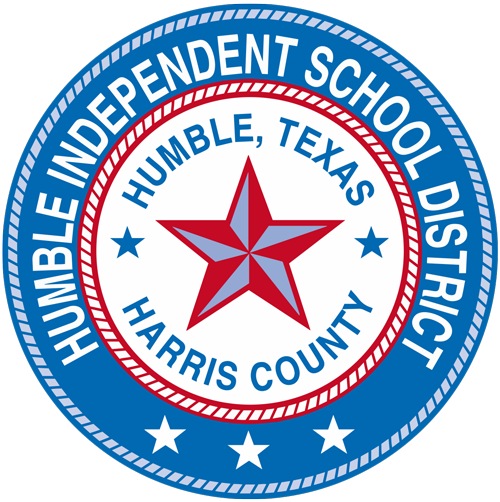Humble ISD is governed by a seven-member Board of Trustees whose members are elected for four-year terms. The Board meets in regular session at 7:00 p.m. each month. Meetings, which are open to the public, are held in the board room of the Board, Business and Technology Center, 20200 Eastway Village Drive, Humble. Special meetings are scheduled as necessary. To speak before the Board, call Karen Martin, executive secretary to the Board, at (281) 641-8008.
Parents and other community members exercise their voice in public education control through the election of the board of trustees. The board appoints the superintendent who carries out the policies set by the school board.
The board and the superintendent work together to assure the best interests of the community's children and the patrons of the school district. Although this is a team concept, both the board and the superintendent have unique responsibilities. The board sets the policies and the priorities; the superintendent and staff carry out those policies and priorities. Board members act only as a whole and do not act on an individual basis. One of the board's responsibilities is not to respond individually, but to insure that the school district is responding.
To Address the Board: Your presence and participation are encouraged at board meetings. Contact the secretary for the board at (281) 641-8008 to schedule to speak about items on the agenda. Board actions are limited to those items on the printed agenda. The Notice of Intent to Address the Board of Trustees is available when the Board Agenda is posted. Board agendas are posted 72 hours prior to the meeting, except in rare circumstances where there is an exception under the law.
Board Meeting Agendas: Agendas for upcoming meetings of the Board are posted on the district's main web page prior to meetings.
Public Hearings: The board conducts public hearings on specific topics from time to time. These hearings provide additional opportunities for public comment on such items as the budget, tax rate, etc. Notices about public hearings are posted.
Because meetings are tape recorded, each speaker is asked to step to the lectern, identify himself or herself by name and address, and, if the speaker represents an organization, to name the group. Persons addressing the board may be given a time limit for remarks.
Board members encourage public involvement and will listen to citizens' views and problems concerning school district matters. Patrons are asked first to go through regular school channels.
This may include a visit with the your child's teacher and the principal. Most problems are resolved at the campus level. If a problem is not resolved to your satisfaction, then you may bring the matter to the attention of the appropriate central office administrator. The school board is the final level of appeal in the school district. However, if the action taken by a campus is consistent with Board policy, it is not appropriate for the Board to substitute its judgment for that of the campus authority.
In accordance with the Texas Open Meetings Law, the board meets privately in executive session to discuss personnel matters, land acquisition, student hearings and to consult with legal counsel. Complaints about specific employees must be handled in executive session in accordance with state law unless the employee requests that the complaint be heard publicly.
Board Elections: Board members are elected at large for four-year terms. They are volunteers who serve without pay. Board elections are held the second Saturday in May in odd-numbered years. Board members serve staggered terms so that there are always experienced members on the board.
Candidates for the Board of Trustees must:
Reside in the school district for a minimum of six months
Be a registered voter in the State of Texas For additional information and/or updates in election-related laws and requirements, please call (281) 641-8001.
Members of the board follow a three-tiered training system set by the state. Tier one is an orientation to the local school district and to the laws on Texas school governance. The second tier includes team-building sessions to enhance the effectiveness of the board-superintendent team. The board and superintendent also conduct an assessment of the continuing education needs of the board- superintendent team and of the individual board members. Those areas in which the group, or individual members need additional information or education should be the basis for training in tier three.
Training must be updated annually. Board members also study background materials on state law, school finance, budgets, curriculum, etc.
Information about board policy

